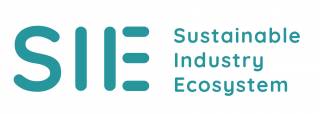The mission of the SIE project is to support Green, Circular Economy oriented, and Sustainable Digital Transformation of Finnish Manufacturing SMEs, by linking existing ecosystems and pilot lines, integrating digital platforms and DIHs at a service of crossborder large scale experimentations, and by enriching previous results in the domain of Industry 4.0 with innovative green and digital applications and open platforms.
The scaling up of technologies is supported by the networking of pilot lines with transparent and common access policy and toolsets for realising green and digital product-service solutions cross-sector. The project will engage the Finnish research, development and innovation community, enhancing it with strong international collaboration aiming to promote knowledge-driven green and digital innovation, and release the full potential of macro-regional collaboration.
The project will engage the Finnish research, development and innovation community, enhancing it with strong international collaboration aiming to promote knowledge-driven green and digital innovation, and release the full potential of macro-regional collaboration.
Financier
The Sustainable Industry Ecosystem project is funded by Academy of Finland.
Objectives
The main objectives of the SIE is to establish an open, self-organizing, online community to promote the national and regional scientific development for digitalization of Finnish industry. The added value comes from bringing together distinct knowledge and expert fields resulting novel, more comprehensive and cross-disciplinary outcomes relevant to the industries as well experts and policymakers at the national and regional level.
These topics are also identified as macroregional ‘strongholds’ of Finland: Robotics and Autonomy of systems, Green energy and Circular economy, Industry 4.0, IoT and AI development, Pilot lines and Future Research and education networks.
The SIE project explores new ways of utilizing research-based knowledge to support the macroregional collaboration by addressing specific challenges related to the SME based industry and promoting the benefits of the advanced ICT infrastructure, digitalisation, robotics and green design.
The project will generate and strengthen smart cross-sectoral, and cross-regional partnerships involving universities, SMEs and a wide range of other stakeholders.
The SIE project builds a community trust to overcome the gaps between companies regarding digital maturity. The SIE project targets also those entities such as regional stakeholders and ministries who consider the traditional projectbased partnerships challenging.
With the funded community development support, SIE project helps the academic sector to engage region-wide with the entities (e.g., start-ups via Pilot Lines) who are currently out of reach of work for research institutes.
Background
Digitalization, economic growth, as well as ongoing fight against climate change have created a demanding environment for traditional manufacturing industry that needs to be controlled in order to survive in the tightening competition in the global markets.
Manufacturing industry makes a significant contribution to the European economy and provides 36 million jobs to Europe, but industrial products are also the third biggest contributors to greenhouse gas emissions and have a negative footprint on depletion of resources, pollution or biodiversity loss.
At the same time the fourth Industrial Revolution is proceeding at high speed in all EU regions. Many of the SMEs are struggling to adopt the new technologies due to the skills and investment scale. The future of the industry needs a new level of education of the workforce.
In a macro-regional context, universities and other research institutions are involved as flagship project partners, but there seems to be no structured collaboration set-up at the national level that promotes utilization of research-based innovation knowledge or piloting environments that helps bridging the gaps between SMEs and digital innovation ecosystems in Finland. The research is not scaled up among the SMEs fast enough.


